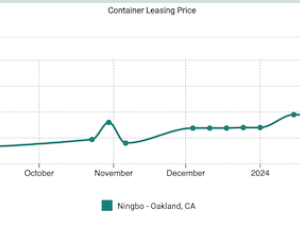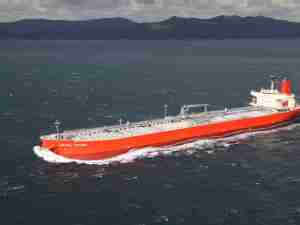China's Bohai Shipbuilding Heavy Industry is expected to deliver the first of Berge Bulk's huge vessels at the end of August, adding more tonnage to an ever expanding global fleet which has led to plummeting freight rates.
"Delivery is at the end of next month. The other three will be delivered in intervals of approximately four months thereafter," said Singapore-based Chief Executive James Marshall.
Berge Everest and three other very large ore carriers (VLOCs) are expected to eventually be operated by Vale, which is seeking to build an unprecedented fleet of dry bulk carriers to meet China's demand for iron ore.
Vale seeks to operate as many as 35 VLOCs before the end of 2013, owning at least 19 of them with the rest chartered from other companies, like Berge Bulk.
The Vale Brasil, built by Korean shipbuilder Daewoo Shipbuilding & Marine Engineering in May, has already completed its maiden voyage delivering iron ore to Italy.
China Rongsheng Heavy Industries completed Vale's second mega ship, Vale China, earlier this month.
The world's biggest dry bulk carriers, each longer than the 324-metre-high Eiffel Tower , are expected to further weigh on the global freight market, which is already down more than 25 percent since the start of the year.
Freight owners went on a buying spree before the global economic downturn and those vessels are only now arriving to the market.
Berge Bulk, which currently manages a fleet of 18 dry bulk carriers, ordered its four VLOCs in early 2007 at more than $100 million each.
Marshall said the dry bulk market will remain tough for the remainder of the year and into 2012. Analysts forecast freight demand growth to lag behind fleet expansion by 9 percent in 2011 and 3 percent in 2012.
"We take a long-term view of the market with long-term contracts with key customers and have positioned our fleet accordingly," he said.
"This means we don't enjoy the peaks of the cycle, but it ensures we can continue to offer our service in the market troughs as well." (Reuters)









